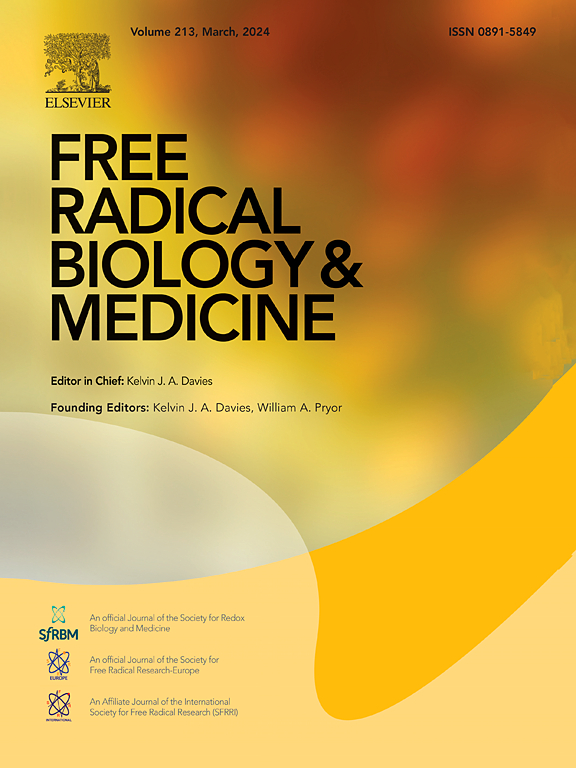Methionine is an essential amino acid in doxorubicin-induced cardiotoxicity through modulating mitophagy
IF 7.1
2区 生物学
Q1 BIOCHEMISTRY & MOLECULAR BIOLOGY
引用次数: 0
Abstract
Doxorubicin (Dox) is a widely used anticancer drug. However, its time- and dose-dependent side effects, particularly severe cardiotoxicity, limit its clinical use. Understanding the molecular mechanisms underlying Dox-induced cardiotoxicity has become a research focus in recent years. Among these, impaired mitophagy which participated in the process of damaged mitochondria clearance, is considered one of the key mechanisms in Dox-induced cardiomyopathy. Methionine (Met) is an essential amino acid that plays a crucial role in various biological processes. This study aims to investigate the role and mechanism of Met in regulating mitophagy in Dox-induced cardiotoxicity. Met deficiency exacerbated Dox-induced cardiotoxicity, primarily by promoting oxidative stress, affecting mitochondria integrity, disrupting autophagy, and thus leading to cardiomyocyte damage and aggravating heart failure. In addition, Met supplementation alleviated Dox-induced cardiotoxicity, via the general control nonderepessible 2 (GCN2) pathway. This study extends our understanding of the relationship between amino acid metabolism and Dox-induced cardiotoxicity, and indicating the Met-GCN2 axis as a promising therapeutic strategy for Dox-induced cardiotoxicity.

求助全文
约1分钟内获得全文
求助全文
来源期刊

Free Radical Biology and Medicine
医学-内分泌学与代谢
CiteScore
14.00
自引率
4.10%
发文量
850
审稿时长
22 days
期刊介绍:
Free Radical Biology and Medicine is a leading journal in the field of redox biology, which is the study of the role of reactive oxygen species (ROS) and other oxidizing agents in biological systems. The journal serves as a premier forum for publishing innovative and groundbreaking research that explores the redox biology of health and disease, covering a wide range of topics and disciplines. Free Radical Biology and Medicine also commissions Special Issues that highlight recent advances in both basic and clinical research, with a particular emphasis on the mechanisms underlying altered metabolism and redox signaling. These Special Issues aim to provide a focused platform for the latest research in the field, fostering collaboration and knowledge exchange among researchers and clinicians.
 求助内容:
求助内容: 应助结果提醒方式:
应助结果提醒方式:


